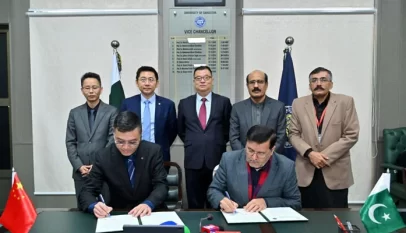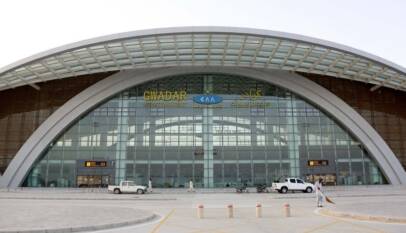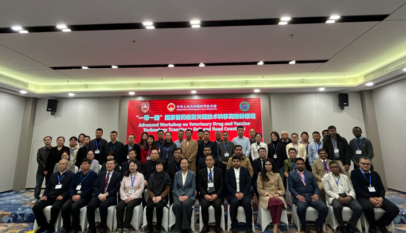Transit trade to Afghanistan continues via CPEC Gwadar Port
Gwadar Port, a key CPEC project, continues to ship fertilizers from Pakistan to Afghanistan, even as uncertainty looms. A total of 500 tonnes of fertilizers were shipped during the last week along. The Gwadar Port has served an efficient role in facilitating transit trade to land-locked Afghanistan. Zhou Rong, a senior researcher at the Chongyang Institute for Financial Studies at Renmin University of China, said that normal should ensue despite changing ongoing regional situation. Chinese imports reach Afghanistan through CPEC route via Gwadar Port, making it the first land-locked country to benefit from BRI.
BEIJING: Even as battle raged across Afghanistan last week, Gwadar Port, now operated by a Chinese company, continued to ship fertilisers to the landlocked country, the Global Times reported.
A total of 500 tonnes of fertilisers were shipped out of the port’s warehouse by a fleet of Pakistani trucks during the past week, a source at the port told the Global Times.
Located in Balochistan, Gwadar Port is a key project of the China-Pakistan Economic Corridor (CPEC), a flagship project of the China-proposed Belt and Road Initiative (BRI).
Since its operation, the port has begun to play a new role as an efficient transit stop and time-saving trade port for land-locked Afghanistan.
Shipments of fertiliser started in January 2020. Fertiliser shipments destined for Afghanistan are leaving the warehouses intermittently due to border closures.
However, this business was not cut off despite the fighting between Taliban and Afghan government forces last week, according to the port’s source.
Zhou Rong, a senior researcher at the Chongyang Institute for Financial Studies at Renmin University of China, saw the unbroken trade flow through this international corridor, even during times of war and conflicts, as a validation of the advantages of trade.
“What happened just showed that normal trade between nations should not be blocked regardless of the situation,” Zhou said, noting that the Taliban knew it should not set up roadblocks for trade which was beneficial for Afghanistan’s war-torn economy.
A trickle of Chinese products continue to flow into Afghanistan through Pakistan, improved by CPEC infrastructure, though trade has been mostly done through the Port of Karachi, one of
South Asia’s largest and busiest deep-water seaports that handles about 60 percent of Pakistan’s cargo, according to Zhou.
Goods made in China shipped to Afghanistan include small machinery, and electrical transmission and distribution equipment, which are imported by Chinese companies that provide electricity to the country’s major cities.
Chinese Foreign Ministry said on Monday that China hopes the Taliban would honour their vows to establish through negotiation an open and inclusive Islamic government, and act responsibly to ensure the safety of Afghan citizens and foreign missions in Afghanistan.
According to Chinese experts, China could play a role in post-war reconstruction and development of Afghanistan, pushing forward projects under the
BRI and providing investment when safety and stability are restored in the country.
Afghanistan has become the first landlocked Central Asian country to benefit from using the Gwadar Port for transshipment trade.
In 2020, the country imported 43,000 tonnes of fertilisers through the port contributing to its agricultural development.
Pakistani, Chinese varsities sign MoU to boost partnership in education sector
Islamabad: Universities in Tianjin, China, have signed three Memorandums of Understanding …











